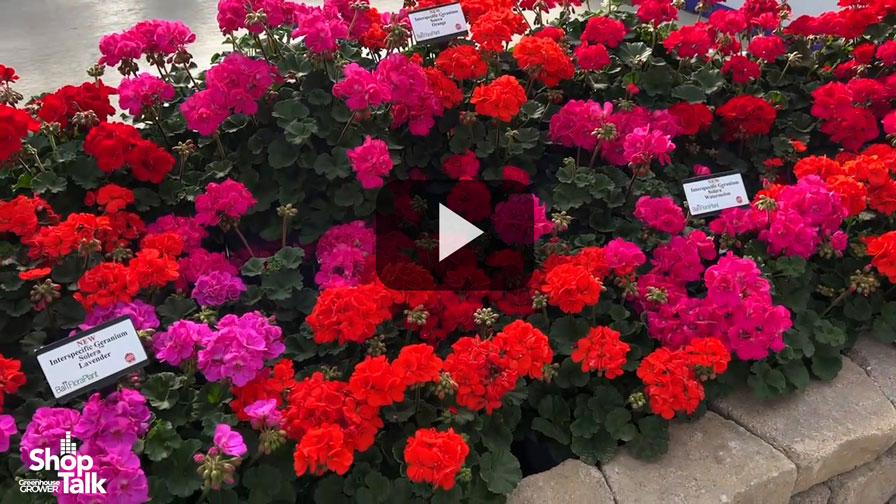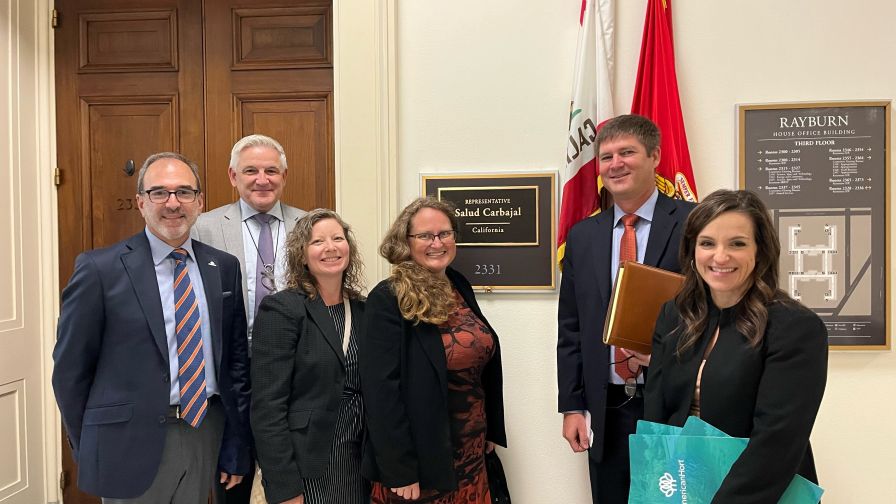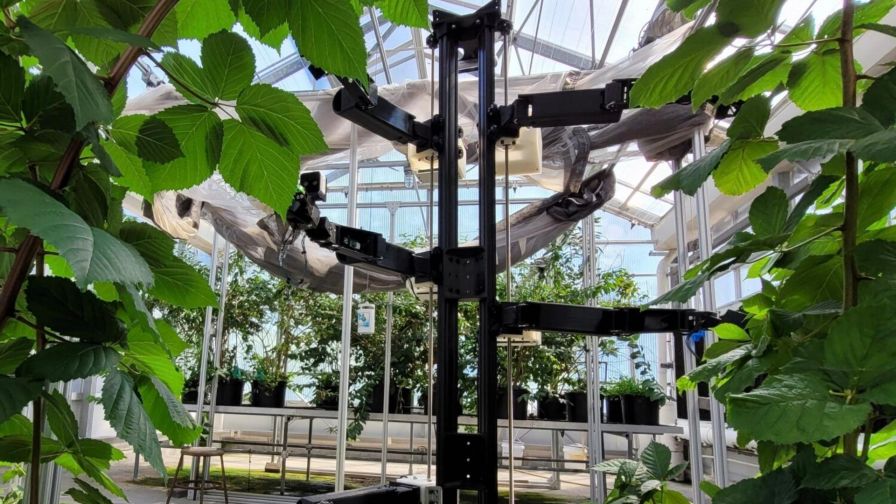Charlie Hall on the Greatest Opportunities Facing the Horticulture Industry
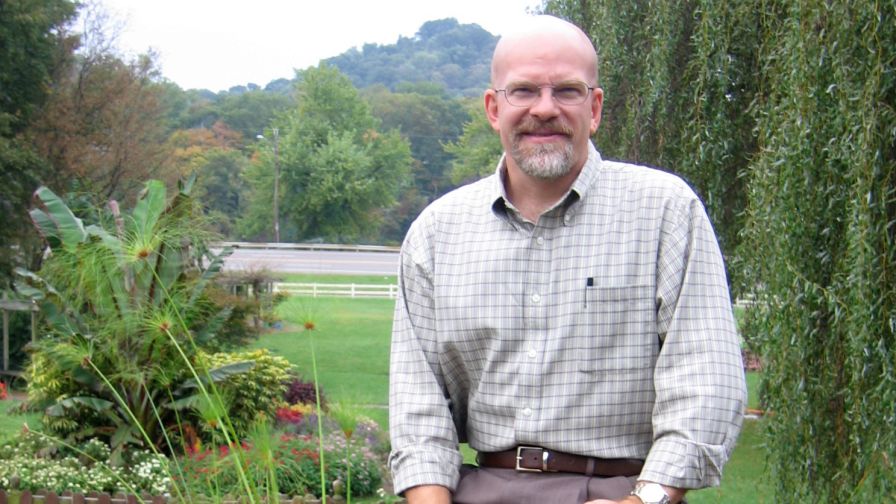 Dr. Charlie Hall of Texas A&M University, who will be speaking at this year’s GROW Executive Summit on the Economic Climate and Forecast for 2023, accepted Greenhouse Grower’s Industry Achievement Award during the Medal of Excellence event at Cultivate’22. Virtually every grower in the horticulture industry knows Dr. Hall, whether it’s from his industry presentations, or his in-person or virtual educational focus. Now, here’s your chance to learn even more about him. Greenhouse Grower’s six-part series on Dr. Hall’s legacy continues with his thoughts on relevancy, plant benefits, and how growers can be a part of the conversation. Check out Part 1 of the series (why growers need to understand horticulture economics) here, Part 2 (how Charlie’s background has shaped him) here, Part 3 (Hall’s thoughts on innovation) here, and Part 4 (the long-lasting value of education) here. Watch for the final part of the series next week!
Dr. Charlie Hall of Texas A&M University, who will be speaking at this year’s GROW Executive Summit on the Economic Climate and Forecast for 2023, accepted Greenhouse Grower’s Industry Achievement Award during the Medal of Excellence event at Cultivate’22. Virtually every grower in the horticulture industry knows Dr. Hall, whether it’s from his industry presentations, or his in-person or virtual educational focus. Now, here’s your chance to learn even more about him. Greenhouse Grower’s six-part series on Dr. Hall’s legacy continues with his thoughts on relevancy, plant benefits, and how growers can be a part of the conversation. Check out Part 1 of the series (why growers need to understand horticulture economics) here, Part 2 (how Charlie’s background has shaped him) here, Part 3 (Hall’s thoughts on innovation) here, and Part 4 (the long-lasting value of education) here. Watch for the final part of the series next week!

Greenhouse Grower: What do you think are the biggest opportunities facing the horticulture industry, both for individual operations and for the industry as a whole?
Charlie Hall: I think the opportunity all revolves around relevancy. Anybody who has heard me speak over the last 12 years knows that, regardless of the topic I’m talking about, I’m somehow going to work relevancy into the conversation. That includes all the benefits of plants: the functional benefits, the economic benefits, the environmental benefits, and the health and well-being benefits. I have literally thousands of citations of research showing those benefits of that human-plant interface. But people are still walking around with plant blindness.
The best opportunity for our industry is to cure people of plant blindness. We need to develop an appreciation in both their hearts and their minds of the role that plants and landscapes play in their lives, including where they work, play, worship, etc. I’ve been talking about this for a long time, that it needs to be part of our value proposition for all stages of the supply chain. Too many people think that’s just a retailer’s job because they interface with the consumer. But it’s an industry issue. If we’re going to have the willingness to pay at the level where we need to be profitable in the future, and if we’re going to see continued growth along the trend line that we’ve seen in the lawn and garden segment in the pandemic, we have to talk about relevancy. When people start making decisions about whether they’re in the midst of the next downturn, are they going to continue buying their gardening supplies or their ornamentals at the same rate in which they did during the pandemic. Or are they going to cut back?
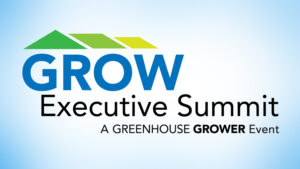
Dr. Charlie Hall is one of the featured speakers at this year’s GROW Executive Summit. Click on this image to learn more and to register!
If we want to continue influencing that elasticity demand, we have to talk about these functional benefits that plants provide, in addition to them being pretty. That’s one of the best opportunities the industry has. During the pandemic. I had conversations with the New York Times, the Washington Post, and other media, and they would ask me why people are gardening so much more. And I would tell them we are in a health crisis, and we have all these health benefits and of people engaging in gardening and landscaping.
The biggest opportunity is for us to influence the elastic demand on the part of our customers and the end consumer, and the only way that we can do that is if that perceived value, the price that they’re willing to pay, is higher than the cost of us providing it. If that perceived value is high enough, they’re going to be willing to pay the price.
The good news is, since millennials are now 38% of all home buyers, their purchasing has resembled their baby boomer parents and grandparents. I’m pretty bullish, because the math works in our favor. Even if that percentage of millennials stays the same, there’s so many more millennials that the math works in our favor. But we can’t just take it for granted that people are going to keep buying from us. We have to tell them why.
Greenhouse Grower: You mentioned that growers may feel they don’t have that direct consumer connection? So what role can they play in this opportunity?
Charlie Hall: There are growers out there who have developed point-of-purchase materials that they’ve shared with their A-level garden centers that talk about some of these benefits. They share some of that information and do some joint marketing. Whether it’s garden centers or allied trade talking to growers, but there’s an educational moment.
If your top customers are really your partners, then everybody has a vested interest in furthering the win-win of the partnership, and that’s generally more profitable sales.
Regardless of which part of the supply chain you’re in, you can work with your customers and ask what you can do to help landscapers that have that face to face with their residential customers, or how you can help lawn maintenance firms that interface with commercial customers, or how you can help retail garden centers that are selling directly to residential homeowners. How can you help them do a better job in educating the public about these functional benefits? You have to be able to think outside the box.






